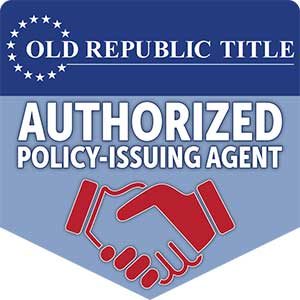Traditional forms of insurance such as car insurance, life insurance, and homeowners insurance are generally paid on a monthly or yearly basis. Title insurance works differently from those other examples, so it is understandable that people may have questions about what it is and how it works. Unlike those other insurance types, title insurance is designed to protect you from things that have happened in the past, rather than things that may happen in the future. Having title insurance ensures that you can convey the title to another without defects or encumbrances and defends you from claims against the property from others up to the amount of your policy. Buying a home is often the single largest financial investment most Americans make in their lifetime. Therefore, protecting that investment from issues of ownership and other hidden title defects is a smart layer of security any buyer should seriously consider.
Will I Ever Need to Renew My Title Insurance Policy?
Unlike other common insurance types like car, home, or life insurance, title insurance is paid during a one-time premium when you are closing on a home. There is no monthly payment and the benefits of the insurance will stay with you and your family as long as you own the home. Any issues that arise before or after closing on your home will be covered by your policy.
Two Types of Title Insurance
There are two different types of title insurance. One offers monetary and legal protection to owners, and the other is for lenders. Often, in order to ensure everyone involved in the transaction is adequately shielded from risk, both owners’ title insurance and lenders’ title insurance will be necessary.
Lenders’ Title Insurance (Loan Policy)
In nearly all cases, lenders will require the borrower to purchase lenders’ title insurance, called a loan policy, so that the lender’s interest in the property is protected until your loan is paid off or refinanced. It is usually based on the dollar amount of the loan and decreases as you pay down your loan until it eventually disappears as the loan is paid off. This title insurance typically comes after a property title search is completed, so while the policy only protects the lender, it does offer some assurance to the buyer. These can include extended policies as well.
Owners’ Title Insurance (Owner’s Policy)
The other type of title insurance is owners’ title insurance, also called an owner’s policy. This is typically purchased by the buyer in order to protect themselves against title problems that may come to light in the future. Owner’s policies are usually issued in the amount of the real estate purchase for a one time fee that lasts for as long as you have an interest in the property. Basically, they provide assurance that the title insurance company will help you monetarily and defend you legally if need be in the event that an unforeseen or hidden title problem surfaces. Owners’ title insurance also has the option for extended policies.
Is It Necessary to Reapply for Title Insurance During a Refinance?
Title insurance can help protect a property investment at different points in the life of the property, such as new construction, when there is a property resale, and also during refinance transactions. Whenever a property changes hands a new owner’s policy can be purchased to protect the new owner’s investment, but for transactions where a lender is involved, a title insurance lender’s policy will always be required.
Even in cases where you refinance through the same lender you worked with in the past, title insurance is required to protect the lenders investment. Whether it was six months or six years ago, a lot could have happened since you bought your home. New liens or legal judgments could have been placed on the property title and other title defects could have come to light. Your mortgage lender is able to protect its investment, and issue you a refinance loan, with much less risk, thanks to title insurance.
What About Your Owner’s Policy?
When you refinance, the lender’s policy is what will need to be updated. However, if you purchased an owner’s title insurance policy when you bought your home, the policy will remain in effect even if you choose to refinance. In cases where a title search doesn’t turn up deed errors or omissions, examining records mistakes, forgeries, the existence of undisclosed heirs, or other problems, your owner’s policy will still protect your property investment against these and other issues for as long as you own it.





